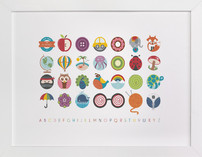
Every author inevitably comes to that point where some other set of eyes, trained or otherwise, needs to take a look at the work in progress. So they turn to friends/colleagues/peers/coworkers/family to join the ranks as what we call beta readers. I'm not going to sugar coat it. The first time one of these beta readers gets a hold of your precious baby manuscript, you kind of freak out. First you start in on those delusions of grandeur that authors create at different stages of the process (tell me this isn't just me). "They are going to LOVE this story. No changes. Perfect as-is. Send me more chapters immediately!"
Not so much. (But really—would we want it to be this way?)
My first experiences with beta reading left me defensive. (And from talking to other authors, I learned that this reaction was entirely normal.) I had ASKED these people to read and give me feedback. Honest feedback. So I had to remind myself of that, and detach myself as a friend, and reapply myself as someone in need of help. Once that happened, I learned that I couldn't live without my beta readers. I wish I could afford to keep them on retainer—secure them as mine and mine alone for every little thing I ever decide to write.
Of course some beta readers work out a little better than others. We all want something different in terms of feedback. I've had the opportunity to beta read a bit for other authors. And it's made me reflect on the kind of beta reader that I am. I tend to edit and make remarks based on the type of feedback I prefer to receive. As I was falling asleep last night I was thinking about the different kinds of readers that exist...this is by no means a comprehensive list. ;)
Page Slayer: Your manuscript comes back soaking in red. It's absolutely torn apart. Every comma, every indent, every quotation mark. This is a copy editor at heart. There's no comment on your preface, plot, pacing, or postscript to be found. Sure your grammar and punctuation may be precisely picked-over and perfected. But the thoroughness may leave you, well, seeing red.
Plot Twister: This is the reader who has grand plans for your novel. They know within the first few chapters what changes you need to make, where the story should go, which characters need to be cut, what you should definitely add in based on other books they've recently read, the major change of POV that you must make immediately. You get the idea.
Short and Sweet: A quick email just to tell you what they liked. Summed up in three sentences or less. Not too much else to say, other than they can't wait to read more. Not super helpful. But always rather sweet.
Between the Lines: This reader likes to get into the story and comment within paragraphs/lines. They may find a spelling error here and there. They might make word suggestions, or restructure sentences to read better. They ask poignant questions about plot holes. And pose pertinent suggestions for improvement or story enhancement.
Hard-Hitter: You have to really stretch to find a compliment from this one. A lot of things aren't working in your manuscript. Your voice isn't authentic. Your chapters are slow. Your dialogue isn't very believable. You name it. While some of the advice might actually be spot-on and helpful, it's hard to see the positives when all you are swallowing are negatives.
Skimmer: Theyreadsofasttheymissimportantdetails. Then they ask you to clarify all of those details.
20 Questions: All the feedback comes in queries. What is going to happen next?? Who will the killer turn out to be?? Will the main character make it to his destination?? What was hiding in the shadows?? Why wasn't the door locked when the main character came home?? Will he DIE?? This goes on for one solid paragraph in the body of an email. At least.
Cheerleader: This one is obvious. And it's why I usually don't let family read my work. Because while they might be well-meaning and excited for you, they also tend to be hesitant to play the hard-hitter.
The beta readers I work with are a great combination of these styles—an assortment of the type of feedback I like to receive. It's hard to find the right group of readers, though! They have to be a cross section of your target audience, English and grammar experts, genre lovers, and sometimes just a willing pair of eyes. It definitely takes time to hone your trusted group. I feel very fortunate to have found readers who are honest, timely, and offer great feedback and improvements. They help me to grow as a writer and become a better beta reader, too!
What do you look for in beta readers? Are there any you would add to my list?



No Comments Yet, Leave Yours!
Hey babe!! Too funny that we just talked about this! I am definitely a between the lines, and when possible I like to insert Funny comments to relax the author.
But all were totally spot on for people I have or have let go!
Post a Comment